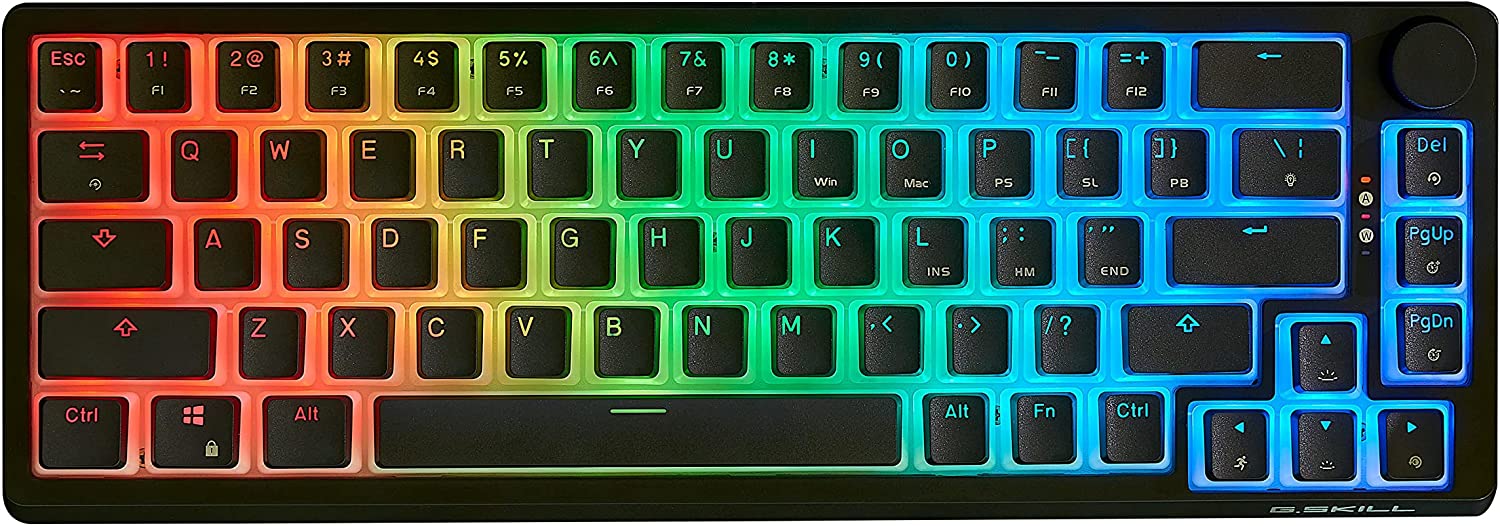 At a glance
At a glanceExpert's Rating
Pros
- Fantastic price for a mech board
- Decent switches, internal foam, gasket mounting
- VIA and QMK programming
Cons
- Only red lighting
- USB-C cable is a little stiff to plug in
Our Verdict
After conquering the high end of the mechanical keyboard market, Keychron didn’t come to the budget segment to lose. With a combination of solid hardware and hard-to-find programming options, the C3 Pro is a fantastic choice for those short on cash or hesitant to spend big on a keyboard.
Best Prices Today: Keychron C3 Pro keyboard
Mechanical keyboards are my favorite bit of PC accessory tech, but I wouldn’t blame anyone for balking at some of their prices. A “gaming” board from a major brand starts at about $100, and more premium examples can stretch towards $300 or beyond. The sky’s the limit for custom or boutique builds, but your options for budget designs from reliable vendors are pretty limited. Keychron is ready to buck that trend with the new C series.
The C3 Pro collects a smattering of Keychron’s best features with a teeny-tiny price, just $35. For that you get single-color backlighting, internal foam and a gasket mount, a choice of linear or tactile switches, and perhaps most crucially, programming options with QMK and VIA. It’s a very different beast from the keyboards that Keychron has been making for the last couple of years, notably with a full plastic body and ABS keycaps. But the combination of features and quality makes it the new budget board to beat.
Further reading: See our roundup of the best mechanical keyboards to learn about competing products.
A study in compromise
The C3 Pro is a TKL board, meaning “tenkeyless,” wherein the number section on the right of a full-sized design is chopped off. While eschewing the full aluminum case and rainbow lighting of Keychron’s more expensive designs, this board still offers a touch of flair with red Space, Enter, and Escape keys, matching the red backlighting. (Black alternates come in the box if you want a more button-down look.)
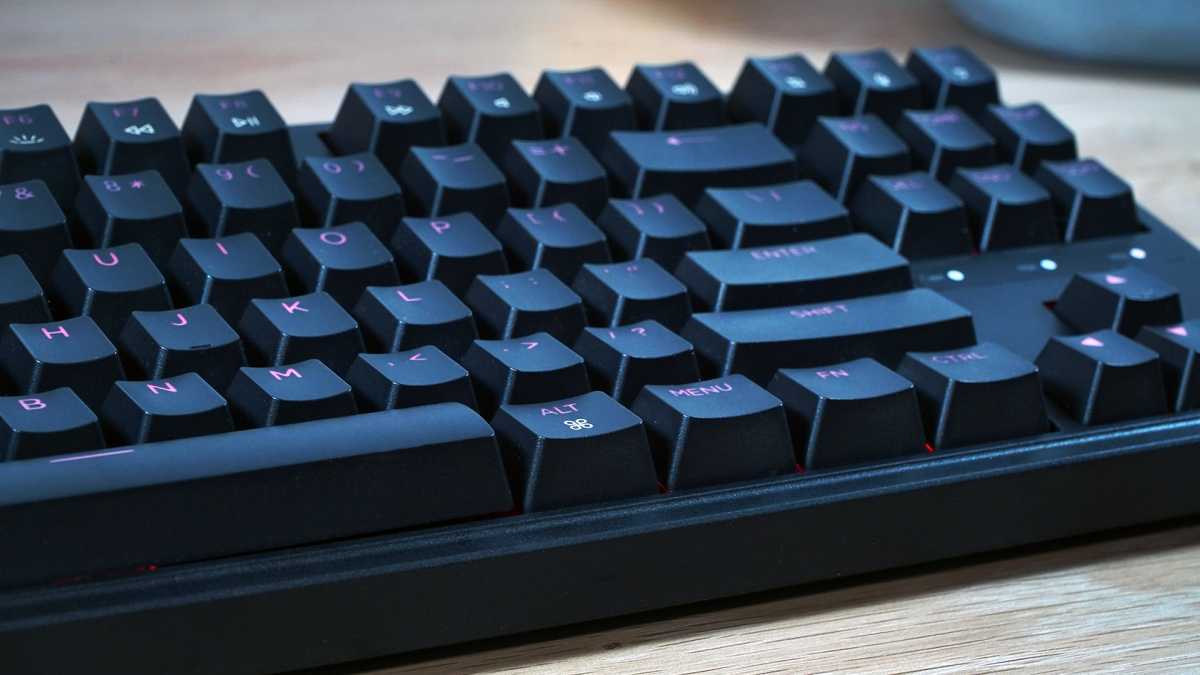
Michael Crider/Foundry
Though this isn’t a gaming keyboard specifically, you could be forgiven for thinking it is, especially with the red LED flare lights on both sides. The red theme can be enhanced with the backlighting, which shines through the ABS keycaps. These are a bit smoother and cheaper than the PBT keycaps offered on many keyboards (even some less expensive ones). But they’re pretty decent doubleshot plastic, meaning the legends will never wear down no matter how many TPS reports you complete.
Look closely at those legends, and you can see a bit of Keychron’s legacy as a Mac-first keyboard maker. Some white printing on the Function row on the Win and Alt keys shows their Mac keyboard equivalents — pressing Fn + Caps will switch to a Mac layout. Fortunately for us PC die-hards, the legends also double for the function layer for most of these keys, including media and volume controls.
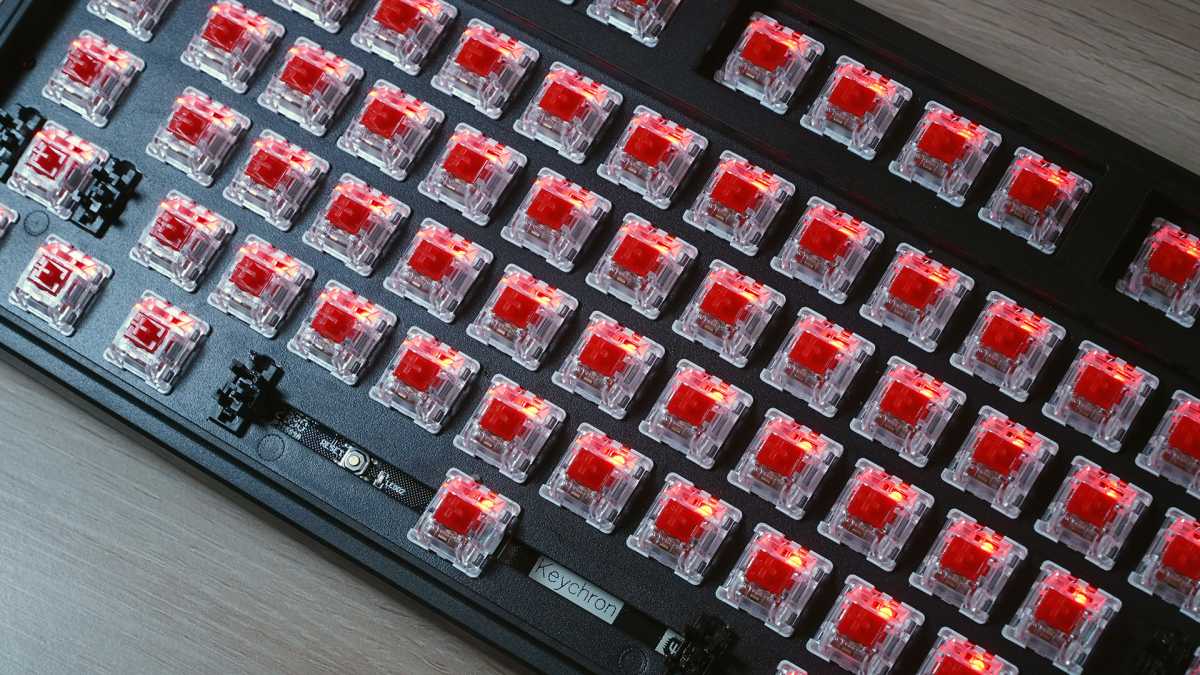
Michael Crider/Foundry
Lighting comes in any color you want, so long as you want red. Again, this is an acceptable trade-off for the price, though I imagine some users would have preferred white. Fn + Q will cycle through 14 pre-programmed effects, which are pretty decent as these things go, especially with the added flair of the side lights. Fn + Tab turns them off.
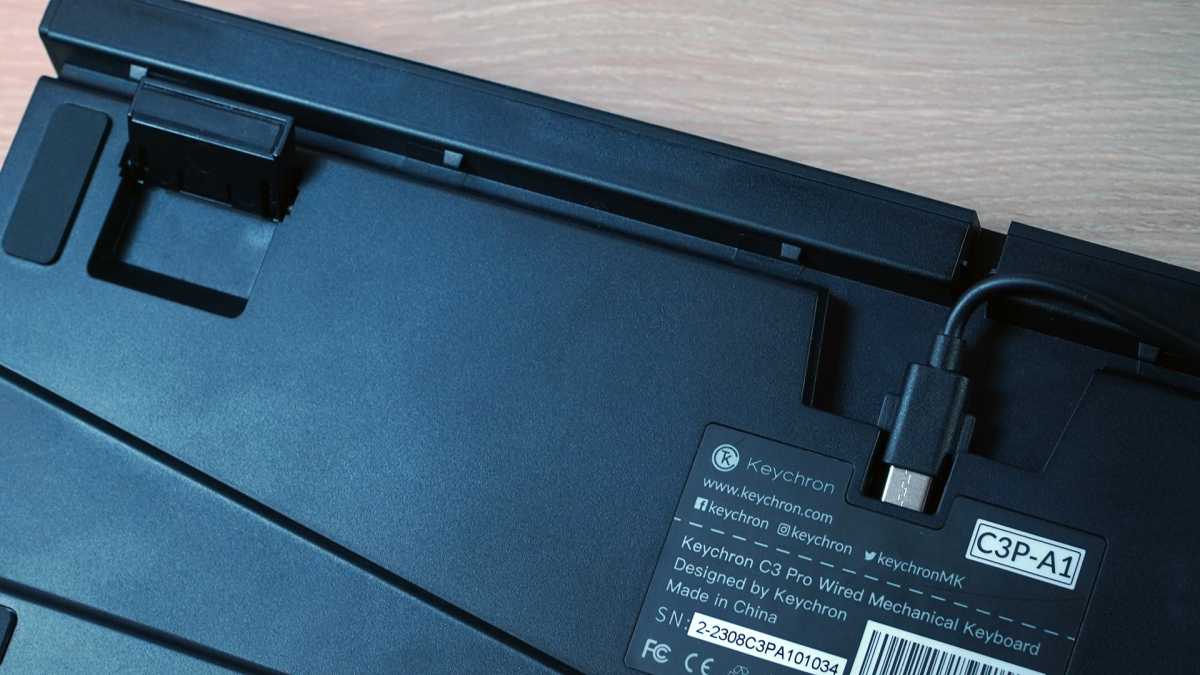
The flanged USB-C cable is a little awkward.
Michael Crider/Foundry
The rest of the board is fairly typical. Underneath is a set of two-stage feet, very handy for adjusting the typing angle, and some much-appreciated routing for the detachable USB-C cable. (This is a feature that Keychron doesn’t have on its hefty Q series boards, by the way — presumably putting those grooves into aluminum would be much more expensive.) The cable isn’t braided, and it’s weirdly hard to plug in with its flanged head, but once you have it set up you don’t need to think about it again.
Typing and programming
The typing experience on the C3 Pro is pretty good, and punching way above its weight class in terms of price. I’m guessing that the “Keychron branded” linear switches on my review unit are probably re-badged budget switches from Kailh or Gateron, and they’re definitely not as smooth as the ones on the pricier models. But thanks to high-quality stabilizers and a little generous give from the gasket mount, which suspends the main deck in two layers of foam, typing is downright pleasant event for extended periods. It’s a little quieter than average, too, thanks to some extra internal foam.
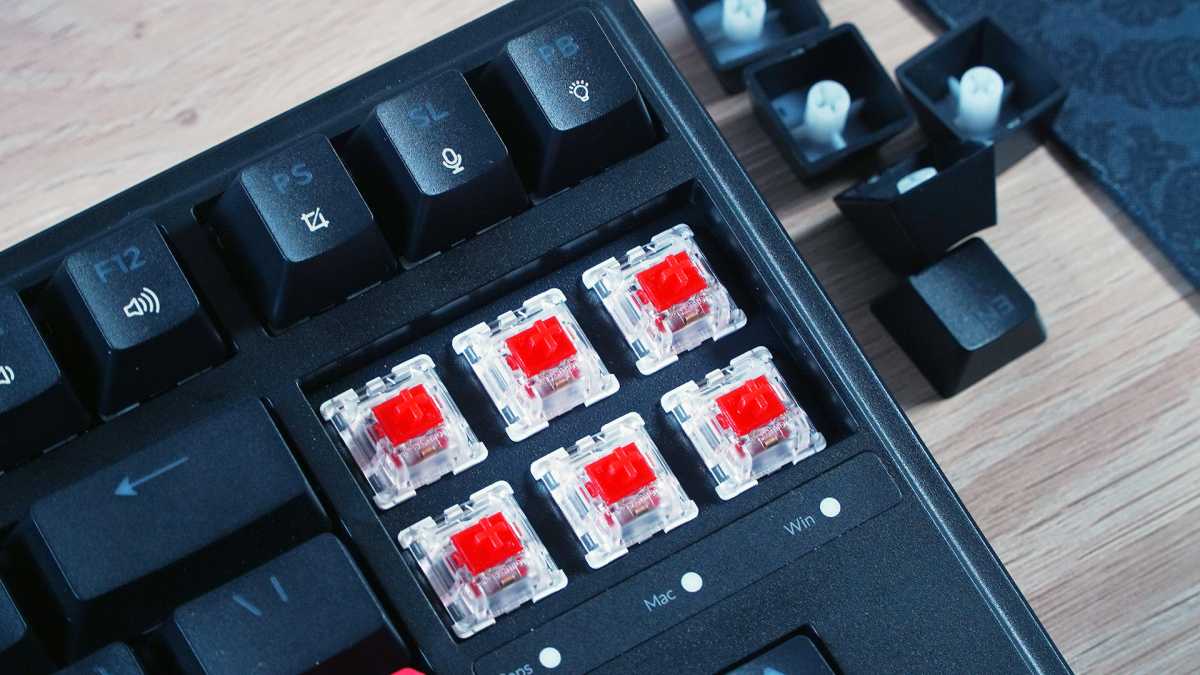
The C3 Pro features a deep, squishy gasket mounted deck, a rare sight at this price.
Michael Crider/Foundry
The keyboard’s layout is standard TKL, which means you can use the included keycap tool to remove the caps and supply your own, confident that they’ll all fit correctly. Sadly, the switches are soldered in place, so you won’t be replacing them any time soon. Again this is fairly typical of boards at this price (or even a much higher one), but at least one example has proven that it’s doable. The plastic case also has no exposed screws, so this is not a design meant for heavy customization, either outside or in.
But there is a pretty huge advantage that the C3 Pro has over some of its budget competition, and it’s why this design gets “Pro” in the name. Like some of the company’s more expensive models, it can be programmed with the popular QMK or VIA open-source tools. While this is less immediately necessary than it would be for, say, a 60% board, it’s still a premium feature that you rarely see at this price level (even with proprietary “gaming” software). It’s much appreciated.
You can use the included keycap tool to remove the caps and supply your own, confident that they’ll all fit correctly.
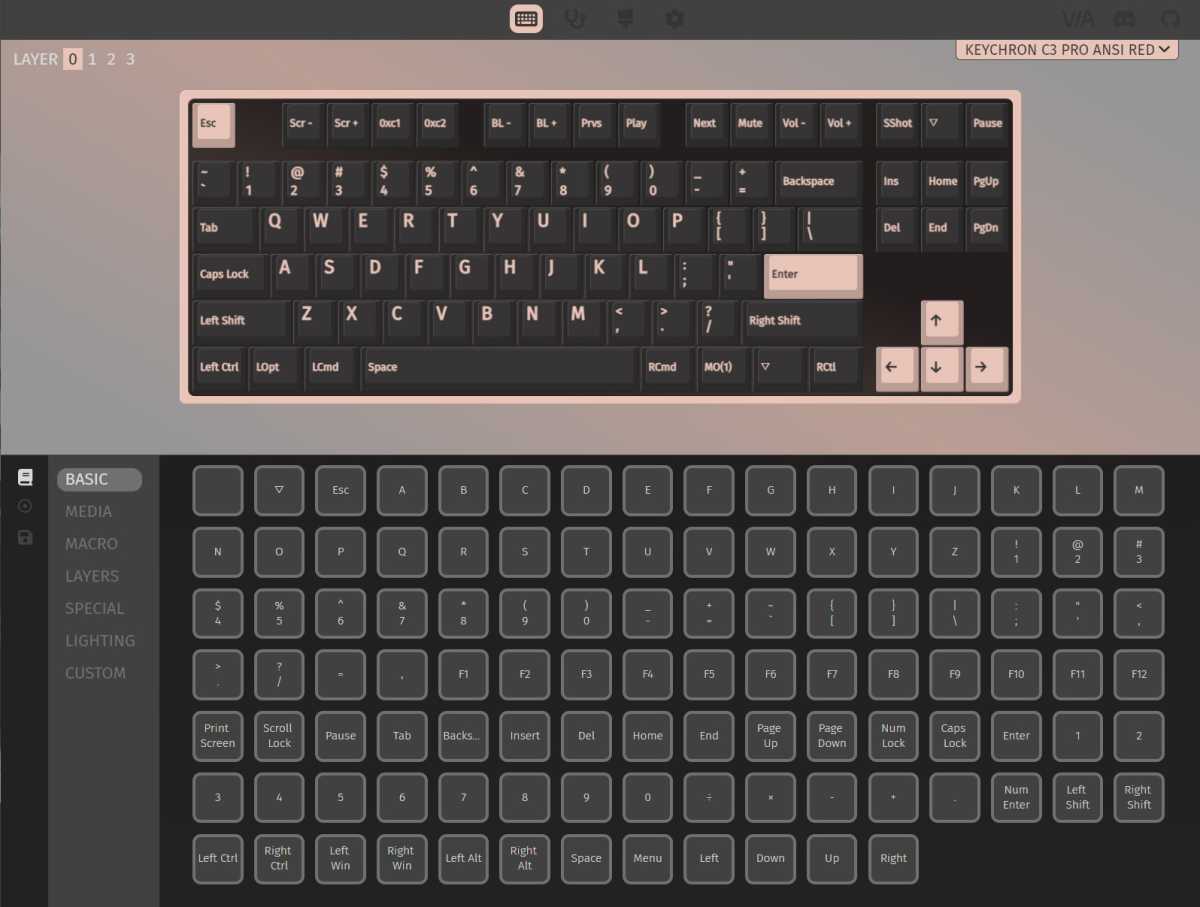
Michael Crider/Foundry
Actually getting the more user-friendly VIA up and running for the keyboard is a little unintuitive, requiring you to load up the web interface, authorize the board, and then upload a format file. Once in place, you get a standard and function layer for both Windows and Mac configurations, which should be more than enough for everyone.
Is the Keychron C3 Pro a good deal?
The C3 Pro is, objectively, a fantastic deal. Its combination of features and hardware at this price would be unbeatable…if it weren’t for one other keyboard I’ve tested this year. The G.Skill KM250, at just $5 more, is definitely going for the same budget crown.
The G.Skill keyboard includes RGB lighting, PBT “pudding” keycaps, a rotary volume dial, and hot-swap switch sockets that let you customize the feel of the board to a much greater degree. On the other hand, it’s lacking the VIA programming featured on Keychron’s keyboard, and with its more compact size, it could really use it. It also doesn’t have a gasket-mounted deck, making it a little stiffer, though it does have some of that same sound-damping internal foam.
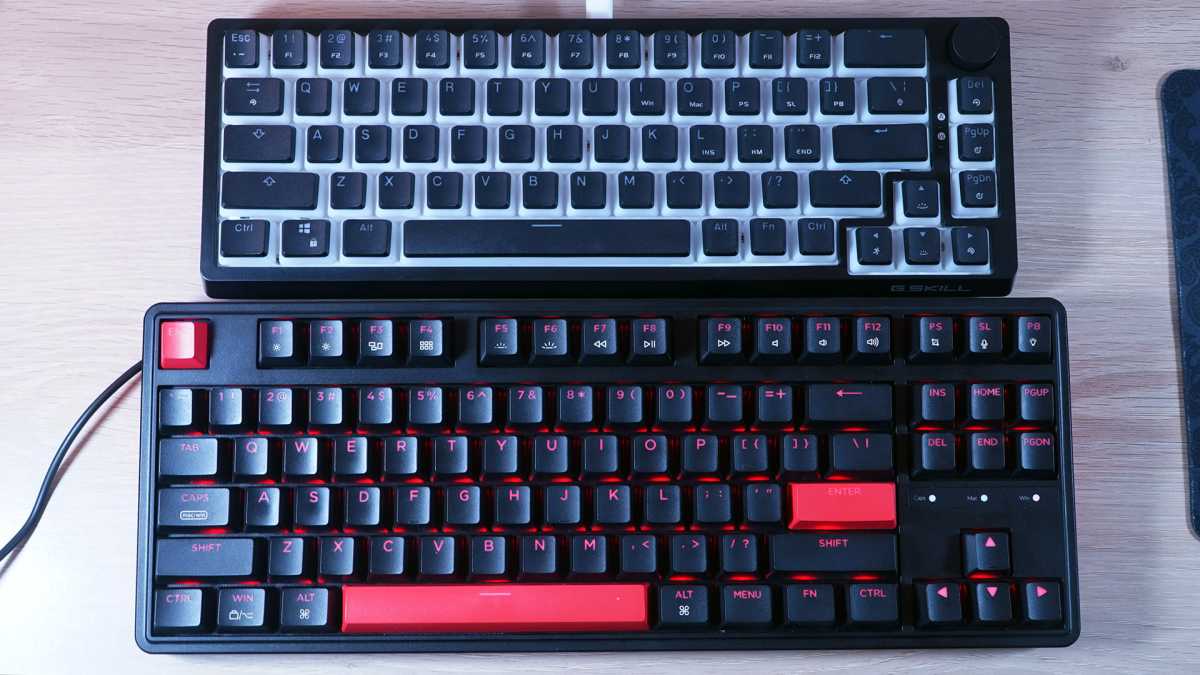
Michael Crider/Foundry
Honestly, the biggest difference between these two boards is the most obvious one: the size. Keychron offers a standard TKL layout that’s easier to get accustomed to, while G.Skill’s 65% is relatively tiny, but requires a bit of user adjustment. If you’re choosing between the two and it’s a toss-up, go with the one that appeals based on the layout.
Conclusion
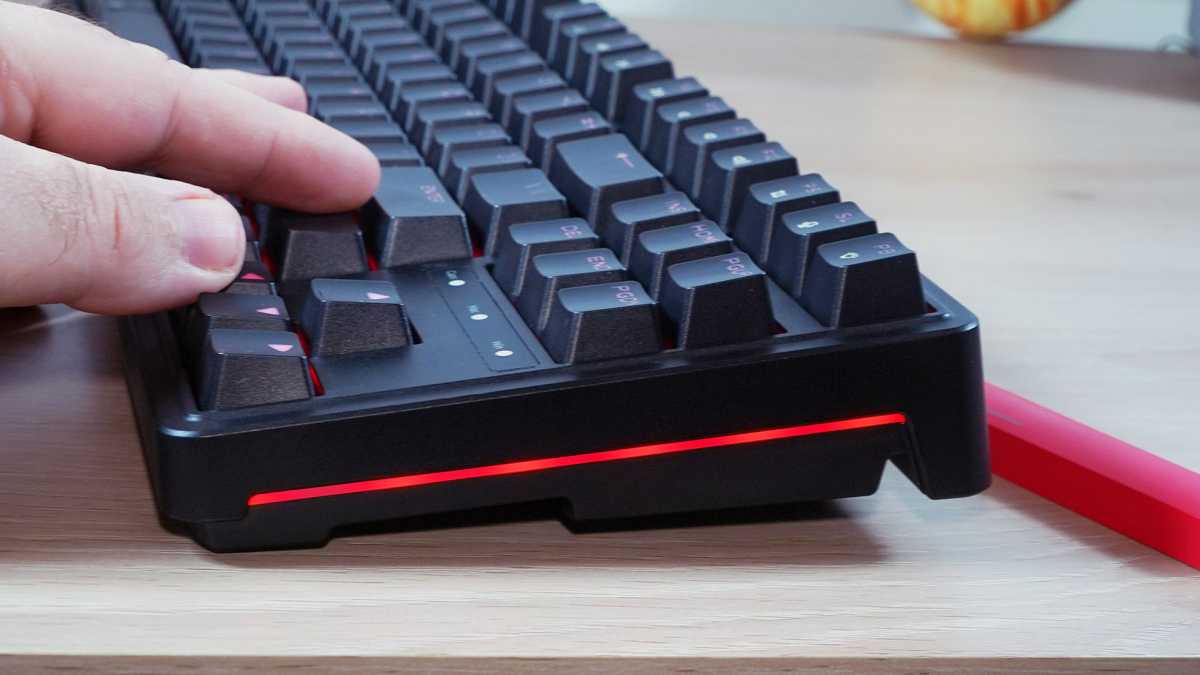
Michael Crider/Foundry
Keychron has proven that it can compete in the high-end, triple-digit segment of the keyboard market, with tons of different designs and formats. The C3 Pro demonstrates that the company can still make a great board on a budget. While it’s lacking the premium switches, PBT keycaps, and flexibility of fancier keyboards, it’s nearly impossible to beat dollar-for-dollar. Unless you absolutely need hot-swap switches (in which case, go for the G.Skill KM250), it’s a fantastic choice.



